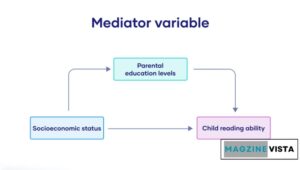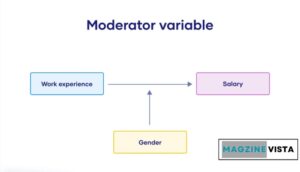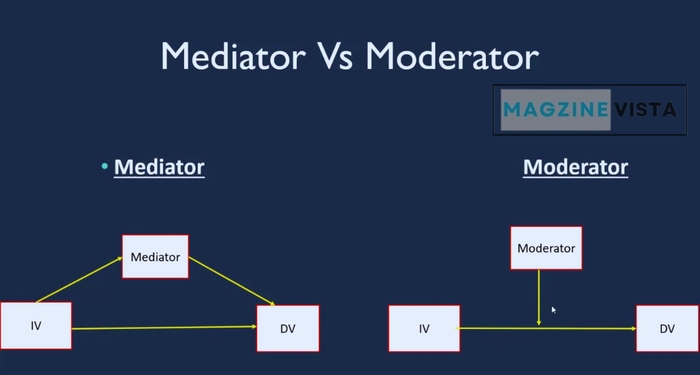Here we discuss the battle of Moderator Vs Mediator. An intervening variable (or mediator) acts to clarify the relationship between two individuals or things; an intervening variable (or moderator) modifies its nature or degree.
By including mediators and moderators in your research, you can better understand how the world functions as a whole rather than just the relationship between two variables. Such factors should always be considered when looking into intricate correlations or causal ties.
Moderator Vs Mediator variables
Mediating variable

Mediator analysis uses ANOVA or linear regression analysis to establish whether a variable is a mediator. As was stated previously, mediation can take a limited or comprehensive form; independent variables often create mediators that ultimately have an impactful influence over desired outcomes.
Moderating variable

Statistics can help researchers better understand interactions among variables and the situations where those associations are strongest or weakest; moderation analysis is an ideal approach to accomplish this task. Multiple regression, ANOVA, and structural equation modeling are all viable techniques for conducting such an investigation.
Moderators in research can range from qualitative (e.g., race, gender, and religion) to quantitative factors such as age, income, and weight. Their effect remains even when removed altogether – unlike partial mediation techniques, which only partially mediate relationships between variables.
Moderator Vs Mediating Variable Example
Let’s know an example of mediator variable and Moderator. Research statements may include multiple variables in Moderator Vs Mediator, independents, and dependents; below are examples.
Example 1:
Study on children’s reading proficiency and socioeconomic status:
Socioeconomic status affects parental education levels, affecting children’s reading skills. Parental education could impact kids’ reading skills.
- Independent Variable: Socio-economic status
- Dependent Variable: Child reading ability
- Mediator vs. Moderate Variable: The parents’ educational background.
Example 2:
Pay and work experience study:
Your proposal suggests that, given all relevant factors, job experience can serve as an accurate predictor of income. Furthermore, gender identification modulates this relationship.
- Independent Variable: Work experience
- Dependent Variable: Salary
- Mediator vs. Moderator Variable: Gender is the moderator
Example 3:
Effects of laptop use at night:
Your mental health may influence the amount of time spent using your laptop in the evenings and thus affect how much restful sleep you get.
- Independent Variable: Using the laptop
- Dependent Variable: Sleep hours
- Mediator vs. Moderator Variable: The intermediator is mental health.
Example 4:
Social media’s effect on loneliness:
Social media could indicate loneliness levels; however, loneliness tends to be much more prevalent among adolescents than adults.
- Independent Variable: Social media use
- Dependent Variable: Level of loneliness
- Mediator vs. Moderator Variable: Age is the mediator
Other Related Articles
Conclusion
Moderator Vs Mediator analyses are two statistical techniques commonly employed for causal inference. Each has its distinct functions and natures that complement one another. Mediating variable analysis seeks to ascertain how one variable impacts another via third parties.
Moderating variable analysis examines when the relationship between independent and dependent variables is most secure. Both methods use SEM and multiple regression analysis; you must know how they compare to select an approach.
FAQs
Can a mediator also be a moderator?
Misunderstandings regarding mediator and moderator distinctions should be avoided.
What is a moderator vs. mediator vs. mechanism?
A mediator variable describes how two variables interact and become linked, while moderator variables serve to alter both their nature and the strength of the relationship between them.
What is considered a moderator?
Moderators are third variables that modify the slope of dependent variables on independent variables (the zero-order correlation). They do this by altering how their pitch relates to other variables.
What is a moderating variable?
Moderator variables can be either qualitative (gender, SES) or quantitative (social support) and may alter both the direction and degree of association between an independent or predictor variable and its target dependent variable or criterion variable.
While moderators often focus on what attributes or states must exist for causal relationships, mediators strive to foster effective communication about this connection.



